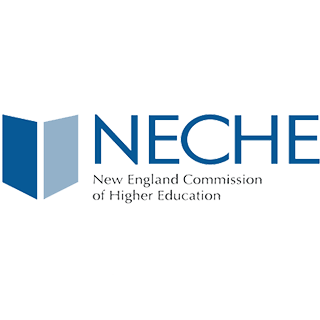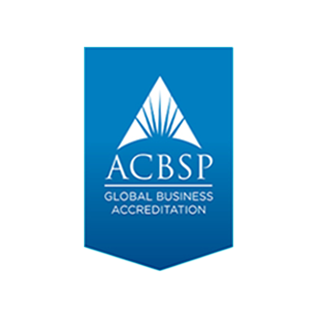Master of Science in Information Technology New England campus experience

Experienced professors
Career-relevant curriculum
Academic and career support
Program Overview Why get a master's degree in information technology on campus?
Organizations in nearly every industry seek IT professionals who can think beyond traditional computer programming and basic technology. With a Master of Science (MS) in Information Technology from Southern New Hampshire University, you'll learn how to bridge the gaps between communications, IT and business management as you dive deep into the foundational understanding of technology and contemporary issues in the field.
Skills you'll learn:
- Computer-based solution development
- Information technologies, concepts and methods
- Communication and collaboration
- Risk assessment and security maintenance
- Computational logic and critical analysis
- Legal and ethical compliance

Courses & Curriculum Bridge the IT gap with on-campus information technology courses
The master’s in information technology program offers an in-depth look at the latest IT topics and applications. Throughout your courses, you'll learn how to construct ethically sound procedures to ensure legal compliance and security in tech environments. You’ll also collaborate with your peers across a variety of projects and learn from instructors with industry knowledge.
Looking to specialize your degree?
SNHU offers a business analytics concentration for the IT degree.
Integrate the 3 areas of business analytics – descriptive, predictive and prescriptive – into your curriculum. You’ll develop the management science techniques that create solutions to business problems while you learn how to comb through data and gain insights into operations.
Learn from instructors with industry experience
Our faculty members bring with them decades of knowledge and experience in information technology, which informs the development of SNHU’s courses and curriculum. They look forward to supporting your journey both in the classroom and as you work toward a career in your field.
Elizabeth Henley
Position
Professor and Chair, Management Science and Information Systems
Joined SNHU
2002
Education
- Doctor of Education from Walden University
- MEd in Elementary Education from SNHU
- BA in English Language and Literature from SNHU
In addition to serving on many committees at SNHU, Dr. Elizabeth Henley is the facilitator for a student group on peer connections and social skills and the advisor for both the anime and film club and the American Sign Language club. Henley is certified in elementary education and special education and is a member of the Association on Higher Education and Disability – New England. Her research areas include assistive technology for students with disabilities and assistive technology for writing support for all students.
Shauna Beaudin
Position
Associate Professor
Joined SNHU
2016
Education
- PhD in Information Systems from Nova Southeastern University
- Master of Business Administration
- BA in Business Administration
When she joined SNHU, Dr. Shauna Beaudin brought with her more than a decade of teaching experience. Beaudin was previously an adjunct instructor at Daniel Webster College, the New Hampshire Art Institute and the University of New Hampshire. Beaudin also served as a technology consultant. Her teaching topics include accounting information systems, telecommunications and networking, wireless programming, and a host of different programming languages and web technologies.
Campus Major Courses
Visit the course catalog to view the full MS in Information Technology curriculum.
| Component Type | PC (Windows OS) | Apple (Mac OS) |
|---|---|---|
| Operating System | Currently supported operating system from Microsoft. | Currently supported operating system from Apple. |
| Memory (RAM) | 8GB or higher | 8GB or higher |
| Hard Drive | 100GB or higher | 100GB or higher |
| Antivirus Software | Required for campus students. Strongly recommended for online students. | Required for campus students. Strongly recommended for online students. |
| SNHU Purchase Programs | Visit Dell | Visit Apple |
| Internet/ Bandwidth | 5 Mbps Download, 1 Mbps Upload and less than 100ms Latency | 5 Mbps Download, 1 Mbps Upload and less than 100ms Latency |
Notes:
- Laptop or desktop? Whichever you choose depends on your personal preference and work style, though laptops tend to offer more flexibility.
- Note: Chromebooks (Chrome OS) and iPads (iOS) do not meet the minimum requirements for coursework at SNHU. These offer limited functionality and do not work with some course technologies. They are not acceptable as the only device you use for coursework. While these devices are convenient and may be used for some course functions, they cannot be your primary device.
- Office 365 Pro Plus is available free of charge to all SNHU students and faculty. The Office suite will remain free while you are a student at SNHU. Upon graduation you may convert to a paid subscription if you wish. Terms subject to change at Microsoft's discretion. Review system requirements for Microsoft 365 plans for business, education and government.
- Antivirus software: Check with your ISP as they may offer antivirus software free of charge to subscribers.
Some courses may require software purchase or subscription:
- Adobe Dreamweaver (12 month subscription to Adobe Creative Cloud Student Edition)
- Adobe Photoshop (12 month subscription to Adobe Creative Cloud Student Edition)
- GameMaker (purchase required)
- ArcGIS (purchase of student license required)
- Cypherpath (purchase required)
Microsoft® Office 365 Pro Plus is available free of charge to all SNHU students and faculty. The Office suite will remain free while you are enrolled at SNHU. Upon graduation, you will need to convert to a paid subscription. Terms are subject to change at Microsoft’s discretion.
Can't wait? You don't have to!
Whether you’re looking to continue your education locally or traveling across the world to experience SNHU, you can apply now. We can’t wait to meet you!
Career Outlook What can I do with an information technology degree?
With the growing demand for more business professionals with IT expertise, the skills you'll gain in this program will help prepare you to step into a variety of leadership roles in the IT field.
Career paths include:
- Systems architect
- Systems software manager
- Systems analyst
- Data processing manager
- Director of information technology
- Chief information officer
Projected job growth for computer and information systems managers though 2033, according to the U.S. Bureau of Labor Statistics (BLS).1
The median annual salary for computer and information technology jobs as of May 2023, according to the BLS.1
Understanding the numbers
When reviewing job growth and salary information, it’s important to remember that actual numbers can vary due to many different factors—like years of experience in the role, industry of employment, geographic location, worker skill and economic conditions. Cited projections do not guarantee actual salary or job growth.

Campus Student Experience So, what's it like taking classes on campus?
When you earn your master's degree on campus, you'll have the opportunity to participate in graduate-level, hands-on learning. With SNHU's 3-credit STEM experiential learning course, you can get credit for participating in cyber competitions, learning cloud computing or analyzing real-world data.

Student support
At SNHU, you'll never have to worry about feeling alone. Here, you’ll have help from your advisors, access to tutoring and office hours, career coaching, and mental health services so you can do your best and feel your best.
Additionally, our Office of Diversity Programs, International Student Services and Campus Accessibility Center make campus an inclusive place for everyone. Visit our Student Services page to learn more about our support offerings.

Small class sizes
With small class sizes, you’ll learn in an environment where professors with real world experience know you by name.
Here, you’re not getting lost in giant lecture halls, but instead, actively participating in thoughtful dialogue where you’re always encouraged to collaborate with your peers and ask questions when they arise.

State-of-the-art facilities
Our 300-acre campus has everything you need. From technology-advanced classroom settings to your dorms complete with fitness centers and hangout spots, our goal is to give you the best college experience possible.
Whether you’re learning in a classroom, in a lab, on the field, or in your field, you’ll have what you need to be successful from the moment you wake up to the moment you close your textbooks.
School of Business Learn about the School of Business
In the School of Business, you’ll tackle real-world business challenges with the help of your experienced professors. From interning with local sports teams to learning the ins and outs of starting your own business, you can hone your skills through peer collaboration, case studies and participating in business competitions. Whether you’re focusing on an organization’s finances, marketing, technology or leadership, you’ll get firsthand experience from day one.
Business simulations
Sales immersion lab
Pitch competitions
How SNHU makes college affordable
At Southern New Hampshire University, we're on a mission to make high-quality education more accessible with more affordable tuition. With 70+ career-focused majors, state-of-the-art facilities, D2 sports and over 70 student clubs and organizations, you can get the campus experience you've always dreamed of at a more affordable price.
Fill out the FAFSA to see if you’re eligible for grants or work-study. (You could also be offered loans, though you’ll have to pay those back later.)
Transfer credits toward your master's degree program at SNHU. If you’ve taken one course or many, we’ll evaluate them for you.
Getting free money for college – from SNHU or an outside organization – could help you save hundreds or even thousands of dollars.
Hear from us

Almost every industry relies on technology and information systems, and students should be excited to be part of a field that has such widespread applicability and importance.
Elizabeth Henley, Professor and Chair, Management Science and Information Systems
Accreditations
SNHU is accredited by the regional accreditor the New England Commission of Higher Education (NECHE). The university also carries specialized accreditations for some programs.
This program and its concentrations are accredited by the Accreditation Council for Business Schools and Programs (ACBSP). Student achievement data can be found on the ACBSP accreditation page.


Sources & Citations
1Bureau of Labor Statistics, U.S. Department of Labor, Occupational Outlook Handbook, on the Internet, at https://www.bls.gov/ooh/computer-and-information-technology/home.htm (viewed Oct. 16, 2024).
Cited projections may not reflect local and/or short-term economic or job conditions and do not guarantee actual job growth.
Your dream school is waiting
Apply now or schedule a visit today.


